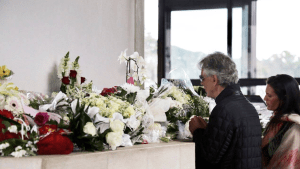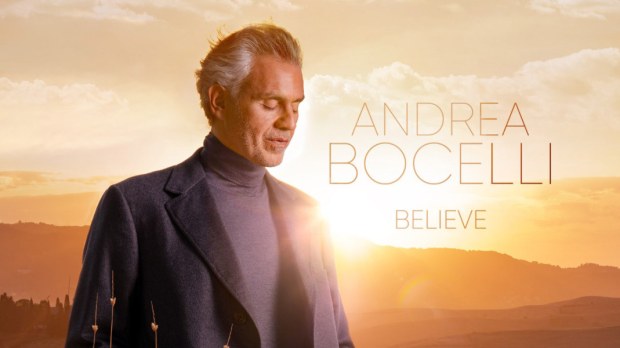Help Aleteia continue its mission by making a tax-deductible donation. In this way, Aleteia's future will be yours as well.
*Your donation is tax deductible!
The Italian tenor, Andrea Bocelli, has just released a new album of sacred music in time for the beginning of Advent.
The sacred music collection, Believe, consists of songs that have inspired Bocelli himself over the years.
“The concept behind ‘Believe’ is based on three words: faith, hope and charity,” Bocelli said in a press statement. “These are the three theological virtues of Christianity, yet – quite independently of any religious belief – they are also the three extraordinary keys to giving meaning and completeness to the lives of every one of us.”
Bocelli’s journey back to the Church
Now a practicing Catholic, in an interview with the UK edition of The Big Issues magazine last year, Bocelli said he was agnostic for many years, until reading Leo Tolstoy led him back to the Church of his youth.
The singer said that “some pressing existential questions cropped up” for him as an adult. “Reading a small and wonderful book by Tolstoy, ‘A Confession’, later followed by all his other masterpieces, helped me a lot along the path to faith.”
“The young Andrea would probably not understand that today I believe in faith and great values, in the need to be pious every day. Over the years I have come to believe that faith cannot be acquired effortlessly: just as any other discipline, it requires commitment, perseverance and sacrifice,” Bocelli shared with The Big Issues. “To be committed to faith means we need to comply with simple deeds that may even appear tedious. If we want to improve our faith, we have to submit to prayer.”
In the interview, Bocelli continued, “To believe that life is determined by chance is not only unsuitable but illogical and not very sensible. The basic rationale that allows us to take the right path when reaching the first fundamental crossroads is to believe or not to believe … To my mind this is a choice and there is no alternative.”
Doctors advised his mother to abort
In a 2009 interview on Italy’s Sunday talk show “Domenica in,” Bocelli’s mother shared how she was advised by doctors to abort him because they suspected medical issues. She refused their suggestion, and he was born with glaucoma. He later lost his sight completely in a soccer injury.
“I cried, but only for a short while,” Bocelli is quoted as saying in Catholic Ireland. “I then set aside any form of self-pity and decided I needed to be positive and optimistic about life, finding ways to explore it. This did not affect in any way my musical training. People may perceive it as my main issue, but it never was and never is.”
“I owe my parents an awful lot. Among the many teachings I received, I would mention the determination not to give up. This is what my parents showed during my mother’s pregnancy when the doctors advised her to have an abortion because the baby would be born with severe illnesses. She ignored their advice and carried on with my father’s support. Without their courage and faith, I would not be here today to tell the story.”
Bocelli’s new sacred music album, Believe
The new album has 14 glorious hymns including a previously unreleased track from the late Italian composer Ennio Morricone, as well asGratia Plena, from the critically acclaimed new movie, Fatima; two duets with acclaimed mezzo-soprano Cecilia Bartoli, and for the first time ever Bocelli’s own interpretation of Ave Maria. Beloved and familiar favorites Hallelujah, You’ll Never Walk Alone and Amazing Grace, a duet with Grammy singer Alison Kraus are also included.

Read more:
Andrea Bocelli in Fatima: Here every breath is a prayer

Read more:
Andrea Bocelli thrills with new “Gratia Plena” for ‘Fatima’ film

